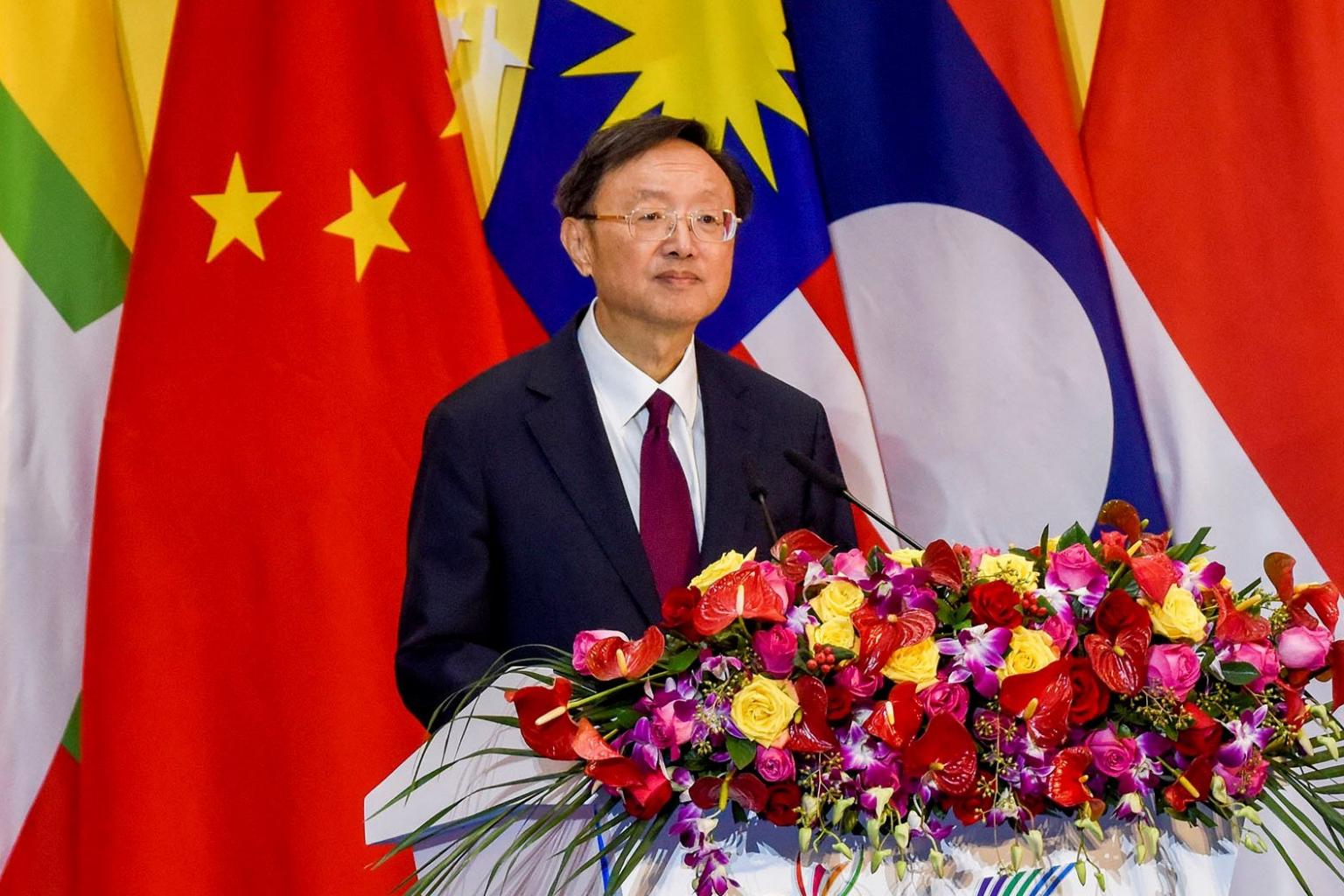China’s top diplomat Yang Jiechi warns Biden not to cross China's 'red line'
Sign up now: Get ST's newsletters delivered to your inbox

Mr Yang spoke at an online forum organised by the National Committee on US-China Relations on Tuesday.
PHOTO: AFP
Follow topic:
BEIJING (BLOOMBERG) - China's top diplomat warned the US not to cross the country's "red line," in a pointed speech that pushed back against early moves by President Joe Biden to press Beijing on human rights.
Yang Jiechi, who sits on the Communist Party's 25-member Politburo, said in a video address to a New York-based US-China group that the two sides "stand at a key moment" to rebuild ties and cooperate after Biden's inauguration.
But he placed the onus on the US to repair the damage caused by the "misguided policies" of former President Donald Trump.
"We in China hope that the United States will rise above the outdated mentality of zero-sum, major-power rivalry and work with China to keep the relationship on the right track," Yang said, a former foreign minister.
Yang urged the US to stop "harassing Chinese students, restricting Chinese media outlets, shutting down Confucius Institutes and suppressing Chinese companies" and said Hong Kong, Tibet and Xinjiang affairs were a "red line that must not be crossed."
The speech to the National Committee on US-China Relations represented Beijing's most high-profile appeal to an American audience since Biden took power on Jan 20.
Chinese President Xi Jinping was among the last world leaders to congratulate Biden on his election victory over Trump in November, and the two men have yet to speak after the inauguration.
The Democratic administration has signalled a desire to maintain the pressure on China from trade and human rights. Secretary of State Antony Blinken said Monday during an appearance on MSNBC that the US should give "haven" to people fleeing political repression in Hong Kong.
He had previously said that China's policies toward its Muslim minority in Xinjiang amounted to genocide.
"So far, all signs on both sides are that neither wants to appear too eager to make the first move in moderating the bilateral tensions," Avery Goldstein, a University of Pennsylvania professor of global politics and international relations, said before Yang's speech.
"Despite the transition to a new administration in the US, continuity rather than change in this troubled relationship prevails."
Yang's message to the US was consistent with a view in Beijing that the US's erratic policies were being driven by deepening fissures in American society, rather than its own policies.
Chinese diplomats in recent weeks have repeatedly dismissed Trump's actions as "madness," laying the blame for the deterioration in ties at Washington's feet.
"Yang's message is very clear. After four years of turmoil under Trump, it's time for both sides to take a moment and reflect," said Zhu Feng, professor of international relations at Nanjing University.
"The madness of Trump's China policy - ripe with hate - has turned out to be a failure. The US should reflect upon such damages on the bilateral ties."
Both sides do appear interested in lowering the temperature from the Twitter-fuelled policy shocks of recent years. While Yang called on the US to stop labelling China as "strategic competitor," Blinken played down the risk of a clash between the two nuclear-armed powers.
"There are adversarial aspects to the relationship, there's certainly competitive ones, and there's still some cooperative ones, too," Blinken said on MSNBC. "But whether we're dealing with any of those aspects of the relationship, we have to be able to approach China from a position of strength, not weakness."
Yang highlighted opportunities for cooperation on issues such as climate change, pandemic relief and macro economic policies. His comments about easing visa pressure on Chinese students and media pointed to one possible area of compromise. Biden's Indo-Pacific coordinator Kurt Campbell said last month that the US could reverse such actions to build confidence with China.
The speech included a symbolic nod to the decades-long project to maintain ties between the US and China. The National Committee on US-China Relations played a role in the "ping-pong diplomacy" that helped start talks between the Cold War rivals in the 1970s.
"It would be a mistake to think that a return to more familiar interlocutors means that issues of great concerns will recede," the committee's chairman, former Treasury Secretary Jacob Lew, said while introducing Yang.
The Biden administration's vow to better defend liberal values such as human rights and democracy is one such great concern. In recent days, US officials have reaffirmed support for democracy advocates in Hong Kong and Taiwan.
"These are the issues that US will definitely touch," Shi Yinhong, director of Renmin University's Centre on American Studies in Beijing. "The confrontation over these issues will continue."

